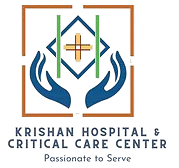Pregnancy can be an exciting yet challenging journey. With awareness and guidance, much can be understood, especially when facing a high risk pregnancy. This type of pregnancy involves greater health risks for both the mother and baby compared to typical pregnancies. Understanding what constitutes a high risk pregnancy is crucial for expecting parents. It helps them prepare and manage their circumstances effectively. In the following sections, we’ll explore what high risk pregnancy involves, the signs to watch for, and how best to manage such pregnancies.
Defining High-Risk Pregnancy
A high risk pregnancy is one where potential complications jeopardize the health of the mother or baby. Various factors can transform an otherwise normal pregnancy into one that’s high-risk. For example, women under 17 and over 35 years often face increased risk.
Globally, about 10-20% of pregnancies are classified as high-risk. Sometimes, women are unaware until a routine check shows increased risks. When classified as high-risk, expectant mothers should approach their pregnancies with added care and regular monitoring to ensure safety for both themselves and their babies.
Identifying the Risk Factors
Several factors might contribute to making a pregnancy high-risk. Knowing them can help in early preparation:
- Age: Being under 17 or over 35 can lead to complications.
- Health Conditions: Diseases like diabetes or high blood pressure play a significant role.
- Multiple Babies: Pregnancies involving twins or triplets need extra attention.
- Lifestyle Choices: Smoking, alcohol consumption, and poor diet can elevate risks.
- Previous Pregnancy Issues: Prior complications, like early deliveries, can raise warning signs.
- Fetal Factors: Issues like poor growth or congenital anomalies fall under this bracket.
These factors underscore the need for informed decisions and regular medical guidance during pregnancy.
Recognizing Key Signs and Symptoms
Certain signs suggest the possibility of a high risk pregnancy. Early warning signs include severe nausea, unusual swelling, or persistent pain. Understanding and recognizing these symptoms is crucial. Regular medical check-ups ensure that any potential issues are promptly addressed.
Self-care measures like healthy eating, staying active, and resting enough also play a part in preemptive health care. It’s vital to act on sudden changes, such as excessive weight gain or bleeding, by consulting healthcare providers immediately.
Navigating Potential Complications
Potential complications in high risk pregnancies are numerous, each with serious implications:
- Preterm Labor: Delivering before 37 weeks can pose health risks to the baby.
- Gestational Diabetes: This affects pregnancy blood sugar levels significantly.
- Preeclampsia: A dangerous condition resulting in high blood pressure and organ damage.
- Fetal Growth Restriction: Where babies weigh less than expected.
Understanding these elements allows for better management and preparations, thus ensuring mothers and babies are best positioned for healthy outcomes.
Exploring Care and Management Options
Effective management means taking extra care right from the start. Prenatal check-ups are vital as they help monitor both the mother’s and baby’s health closely. During these visits, special screenings may be suggested. These screenings detect potential complications early.
It’s also important to maintain a healthy lifestyle. This encompasses balanced eating, routine exercise, and stress management. Such proactive measures greatly contribute to managing a high risk pregnancy.
Emphasizing Prevention and Best-Practices
Anticipating potential issues is a huge part of managing a high risk pregnancy. Planning ahead and consulting healthcare providers before conception can aid significantly. Family planning and smart spacing between pregnancies contribute to healthier outcomes.
It’s also wise to recognize any early signs of trouble and act promptly. Immediate attention and intervention can prevent minor issues from escalating.
Assessing When to Seek Immediate Medical Attention
Certain symptoms demand immediate medical attention. These include:
- Persistent vaginal bleeding
- Severe, unrelenting abdominal pain
- Sudden headaches or visual changes
Such signs should not be ignored, and quick medical consultation is advised.
Conclusion: Hope and Reassurance
High risk pregnancy need not cause undue stress. With vigilance and cooperation with healthcare professionals, positive outcomes are well within reach.
Teamwork with doctors and leveraging available resources will ensure the best possible care for both the mother and the baby throughout this journey.
Consult us today at Krishan hospital and critical care for expert guidance!

